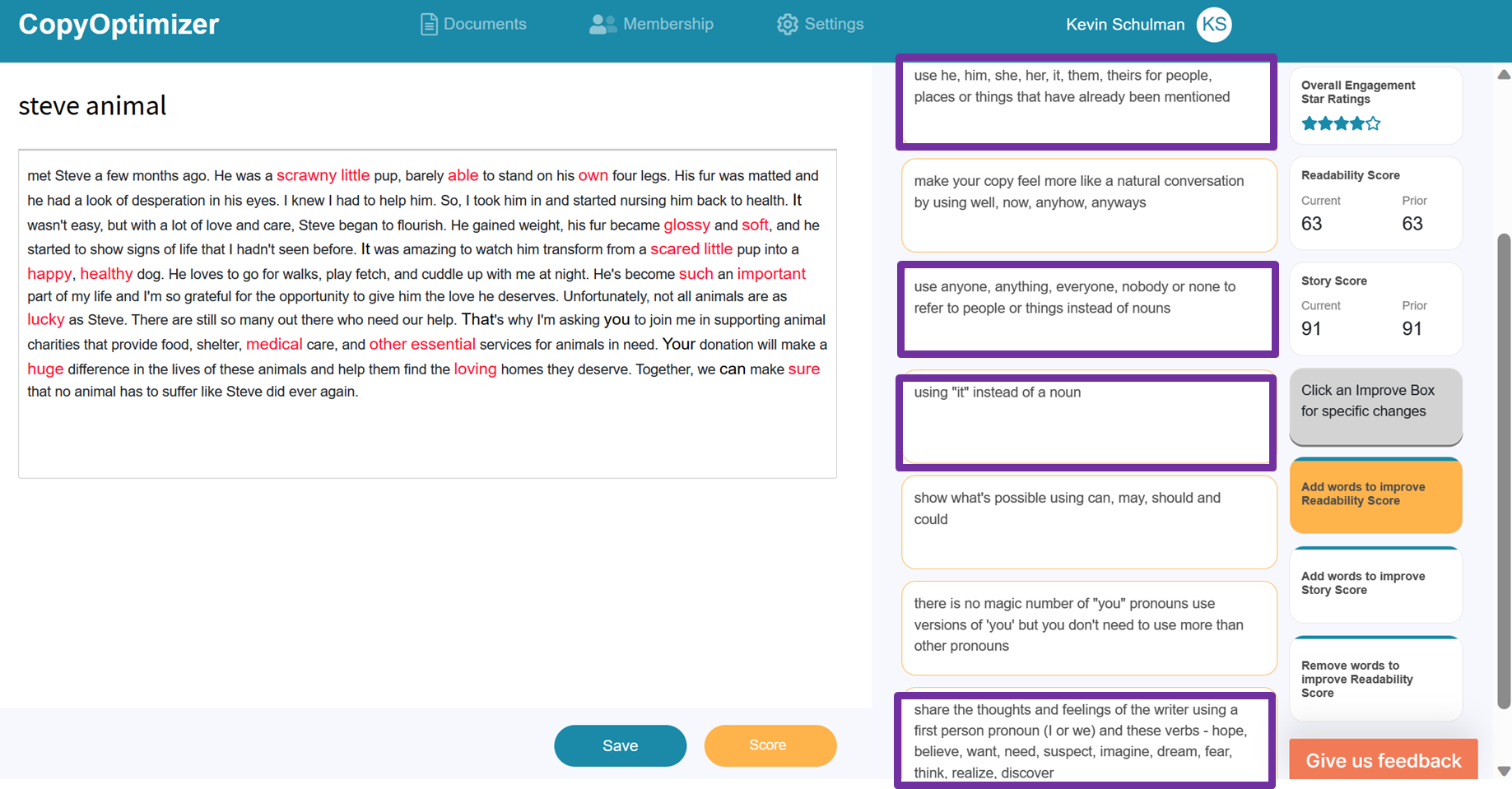Pronouns Matter
I or we. You or us. He or she. Tiny words lumped into a category with articles and prepositions called functional words. They’re the opposite of ‘content’ words, the meaty stuff of nouns, verbs, adjectives.
How can these tiny words matter?
For starters, they’re social words. They help maintain conversation flow by indicated who or what. And they replace clunky repetition of nouns.
And pronouns can tell us a lot about the writer/speaker. People of higher status (leaders, managers, public figures) tend to use “we” more than “I”. The flip side is also true, lower status people tend to be more inward focused, using “I” more often.
The high-status person is able to look outward. They use ‘we’ and ‘us’ pronouns to project a sense of unity and shared purpose, to emphasize the collective identity of a group from which they derive status. If the CEO is signing the letter and it’s full of “I’s” it can feel self-centered, egotistical.
But there are times when the high-status person needs to use “I” vs. “we”. Apologizing to a donor if something went wrong is a cue the high-status person is taking responsibility for the failing.
And “I” is the pronoun that serves as the necessary appetizer to meaty, sharing verbs conveying intimate feelings.
Thought Experiment
Think about a conversation with a friend. What verb do you instinctively put in the blank, “I ______”?
How about think, feel, hope, want, need? These are powerful private verbs, sharing the inner thoughts of the author with the receiver. We want our writing and speaking to feel personal, and 1st and 2nd person pronouns help do this.
Third-person pronouns mean you’re speaking about others. People who use 3rd person pronouns at a higher rate are more socially engaged. In our world, the 3rd person pronouns are a necessary ingredient for good storytelling if the author is sharing someone else’s story, as they often are. He, she, they are requirements for referencing others in a story and creating social cohesion by using them to replace formal names. And, much like 1st pronouns, 3rd can be a gateway to share feelings and thoughts.

Our Copy Optimizer tool (available at very low monthly cost with no-strings) applies all this linguistic science to your copy.
Get Story and Engagement scores and see your copy color-coded with specific ways to improve those scores. It’s like having an Editor for response rate as opposed to grammar. The latter will make your 8th grade English teacher proud but have no impact on your donor.
The screenshot above shows ways that pronouns of various flavors can be used to improve this sample copy and jack up your Readability and Engagement score.
Words matter. Parts of speech, even tiny ones, matter a lot.
Kevin


